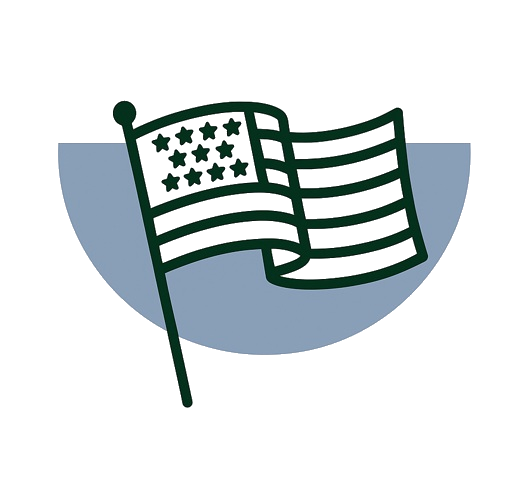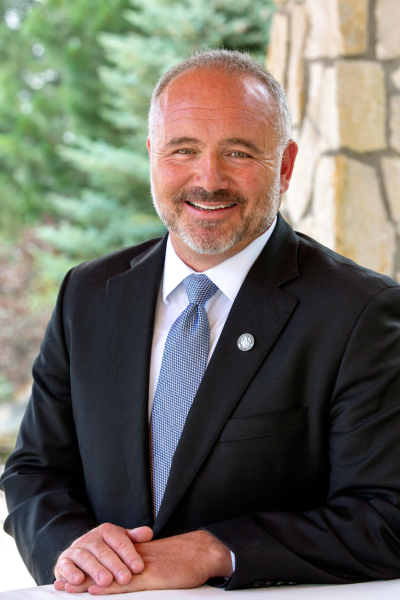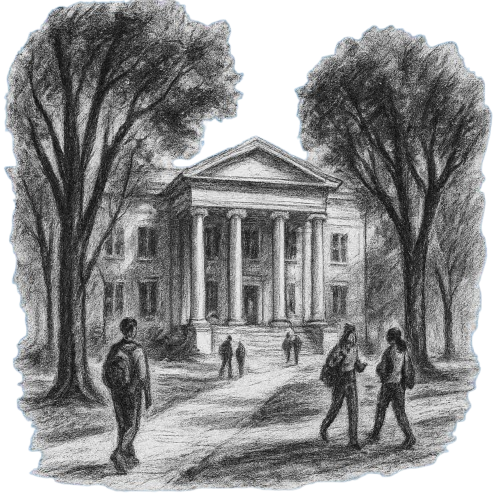Waypoints features a curated digital library of beautifully-published historical documents that enshrine the key ideas of liberty and with which all high school students should be familiar.
Waypoints also provides graduate-level tutorials and seminars for teachers.
Waypoints is not a set of lesson plans. It’s a unique educational experience for educators looking to dig deeper—and become subject matter experts—while preparing students for self-government.

Waypoints are geographical markers that help travelers reach a destination.
Pivotal primary sources are the waypoints of history. They form a map of the human journey from the past to the present, helping us know where we are going by understanding better how the world came to be what it is today.
As Abraham Lincoln remarked in his House Divided Speech, “If we could first know where we are and whither we are tending, we could better judge what to do, and how to do it.”

Canonical primary source documents were written in particular historical contexts, yet present ideas, insights, and lessons that transcend place and time.
Rare philosophic minds and magnanimous statesmen who alter the course of history are more than products of their culture; their thoughts are deeper and wider than the prejudices of their day.
Hegel famously suggested that those from the past are irrelevant to us now because all thinkers are mere “children of their age.” We think Hegel was wrong. Do you?
Within the Waypoints Library of primary source documents, you’ll find permanent questions about fundamental and first things—questions we today should ask and try to answer.
Tutorials offer graduate-level education for teachers who want to inspire students with stories about those who blazed new trails toward freedom, self-government, and human flourishing.

Waypoints showcases 30 Key Ideas of Liberty. These include the virtues necessary for being a self-governing citizen and a happy human being, illuminating the way to a life lived well.

With Waypoints, students not only learn history—they are empowered as they grapple with big ideas and the world-historic documents in which those ideas were first articulated.
After students wrestle intellectually with thinkers such as Aristotle, Locke, Jefferson, Madison, and Lincoln, they become more confident, more willing to read and understand for themselves important documents such as the United States Constitution.
Self-governing citizens must think well and make prudent choices for themselves. Waypoints prepares them for precisely that kind of responsible self-government.
Education is becoming increasingly controversial. Americans disagree over what the purpose of education is, or should be.
Waypoints avoids these controversies by focusing on primary source documents with which teachers can introduce students to a wide range of ideas articulated by diverse thinkers, writers, and statesmen from the past, in their own words.
Good teachers know how to teach. Waypoints is about deepening what they teach.
Waypoints is not a catalog of ordinary lesson plans. It’s different: By connecting training for educators with primary source materials, Waypoints helps teachers prepare truly excellent classroom presentations and lessons that stick.
It’s difficult to accuse a teacher of misrepresenting the American Founders when students are reading and discussing The Federalist Papers rather than politically-skewed textbooks.
The most unfiltered way to learn about the ideas and arguments of Aristotle, or Adam Smith, is to read Aristotle and Smith.
In the most famous debates of the 19th century, who had the better argument? The Waypoints way to answer that question is to let both Lincoln and Douglas speak for themselves through the primary source documents they left behind.
By engaging important minds from the past, students experience the Socratic approach, which is a catalyst for higher-level critical thinking.
By looking through the eyes of great statesmen and towering intellectual figures—and seeing daunting problems as they saw them—students start to view the world from an elevated plane of thought and understanding.


Below are samples of Waypoints primary sources and teacher tutorials.
See how we have transformed foundational texts into beautifully-published editions displayed as easy-to-read digital flip books.
We don’t hand out lesson plans. Waypoints guides teachers to a deeper, fuller understanding of pivotal primary sources.
Become a real subject-matter expert. Be the sage on the stage.
Dr. Thomas L. Krannawitter is the founding president of Waypoints and proprietor of the Substack Zetetic Questions.
He sits on the Mackinac Center’s Board of Scholars, the Scholarly Advisory Board at The Gilder Lehrman Institute of American History, and he is a member of the National Association of Scholars.
He holds a Ph.D. from the School of Politics & Economics at the Claremont Graduate University. He has taught undergraduate and graduate classes at Claremont McKenna College, Hillsdale College, Ashland University, and George Mason University, among other places.
He was formerly Vice President at The Claremont Institute, where he helped launch The Claremont Review of Books in 2001.
He’s been one of the principal instructors for the Leadership Program of the Rockies for over twenty years, where he directs the Defenders of the Declaration of Independence program, and he frequently advises businesses and charitable organizations on communications, employee culture development, branding, and fundraising.
Dr. Krannawitter has testified before state legislatures, though he doesn’t put much faith in politicians. That’s why he focuses on teaching citizens, helping teachers, students, business owners, employees, and others to improve our modern American culture through persuasion and moving stories. Americans won’t get principled constitutional policies from their government until they demand politicians who are principled constitutionalists.
Dr. Krannawitter’s research and published writings have ranged from history to constitutional law to economics to social commentary, from specific historic events to timeless philosophic questions.
His 2008 book, Vindicating Lincoln, was featured by The History Book Club and endorsed by the United States Lincoln Bicentennial Commission. His 2014 book, Crisis of Our House Divided: A Guide To Talking Politics Without The Noise, applies the lessons of Lincoln to our challenges today.
His most recent book, Save the Swamp: Career Guidebook for Budding Bureaucrats, is different. Swamp is funny. It’s satire. He has also contributed chapters to numerous edited, scholarly collections. Please check out Dr. Krannawitter’s author’s page at Amazon.com.
Currently, Dr. Krannawitter is finishing a civic primer titled, Tragedy & Triumph: The American Founding and the Greatest Anti-Slavery Movement in History. He recently wrote a chapter on Professor Harry Neumann, which will be published by the SUNY Press in an edited collection of scholarly essays about select students of the political philosopher Leo Strauss.
Dr. Krannawitter has received many academic and research fellowships throughout his career, including the H.B. Earhart Fellowship (which puts him in the company of Friedrich Hayek, Milton Friedman, Thomas Sowell, Larry Arnn, and Ed Feulner).
He was a Winston Churchill Society Fellow, a Henry Salvatori Fellow, a Richard Weaver Fellow, and the recipient of a John M. Olin Foundation Research Fellowship.
Dr. Krannawitter grew up in Hays, Kansas, where in his younger years he wrenched on cars in his father’s full-service Phillips 66 gas station. He can be tempted occasionally with a cigar or a peaty Scotch, or both. He is married and he has three children. He is romantic about baseball, though many people accuse him of rooting for the wrong team.
It’s not unusual for him to arrive at professional events with fur from his English Cream Golden Retrievers adorning his suit: When the choice is between staying tidy and smooching dogs, he smooches the dogs.

Affiliated Schools and Partners





This is the best plan for an individual who wants to explore Waypoints and continue learning, or a homeschooling family looking to enrich their curricula. You can purchase the Home Plan online right now.
Includes up to 2 Educator and 4 Student accounts:
For Individual Learners: Graduate-level tutorials that bring primary sources alive and offer suffer-matter expertise.
For Homeschooling Students: Direct engagement with pivotal historical documents—exploring influential thinkers in their own words.
For Homeschooling Families: An affordable flexible resource that elevates both instruction and learning.

The Academy Plan is for a school, district, or educational organization. Pricing is based on student enrollment (or members in an organization). Please contact us so we can discuss the needs of your school or organization.
For all Academy Plans, there are two types of Waypoints users: Educators and Students.
For Teachers: Professional graduate-level tutorials and seminars rooted in the Great Books, pivotal documents of American history, and the key ideas of liberty.
For Students: A deeper interactive learning experience that goes beyond textbooks, engaging directly with historic documents and the influential minds who wrote them.
For Schools: A scalable budget-friendly enrichment add-on adaptable to any educational setting and easily integrated within existing curricula.




Lorem ipsum dolor sit amet, consectetur adipiscing elit. Ut elit tellus,